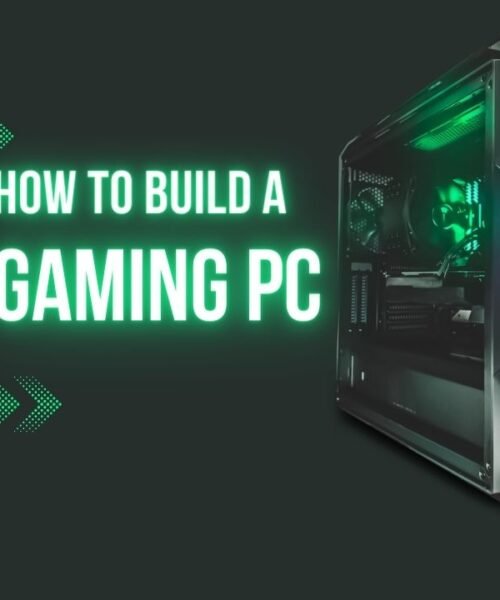Exploring Unique and Innovative Gaming Ideas
The gaming industry has seen remarkable transformations in recent years, spearheading new and engaging ways for players to interact with their favorite hobbies. Among these, augmented reality (AR) and virtual reality (VR) games stand at the forefront. These technologies, by merging the physical and digital realms, offer an unparalleled immersion. With VR headsets, players can dive into fully realized 3D worlds, experiencing games in intuitive and lifelike ways. Augmented reality, on the other hand, overlays digital elements onto the real world, creating hybrid experiences that can be both entertaining and educational.
Interactive storytelling games offer another dimension to modern gaming. By inviting players to participate actively in the narrative, these games transcend traditional story-telling methods. Titles like Detroit: Become Human and Life is Strange exemplify this genre, providing branching storylines where players’ choices significantly impact the game’s outcome. This deepens emotional engagement and fosters a sense of personal investment in the unfolding story.
Moreover, unconventional gaming genres bring refreshing variety. Escape room games, inspired by physical escape rooms, challenge players with intricate puzzles and require collaborative problem-solving. Fitness-based games, such as those utilizing the Nintendo Switch’s Ring Fit Adventure, ingeniously combine exercise with gameplay. These genres cater not only to entertainment but also to mental and physical wellness, promoting an active lifestyle within the gaming community.
A notable trend is the burgeoning indie game scene. Indie developers, unfettered by the constraints often faced by large studios, are free to experiment and innovate. This creative liberty results in unique and often genre-defying titles. Games like Hades or Cuphead showcase the rich creativity and artistic vision of indie developers, emphasizing gameplay mechanics and storytelling over high-budget graphics.
Through these varied and inventive ideas, the gaming landscape continues to evolve, offering players new ways to engage and immerse themselves in ever more captivating experiences.
Creating a Balanced Gaming Routine
Maintaining a balanced gaming routine is paramount in promoting a healthy and sustainable lifestyle. As gaming has become an integral part of many people’s daily lives, it is essential to integrate it thoughtfully into your routine to ensure that other responsibilities are not neglected. Allocating specific time slots for gaming can help in managing work, studies, and social activities more effectively.
One of the key aspects of a balanced gaming routine is scheduling. Developing a weekly schedule that delineates time for gaming alongside other essential tasks can significantly enhance productivity and ensure that no area of life is compromised. For instance, dedicating specific hours in the evening or during weekends for gaming can help in creating a structured and disciplined routine. Importantly, adhering to this schedule can also instill a sense of balance, prioritizing not just entertainment but also responsibilities and relationships.
Regular breaks are crucial in preventing eye strain and fatigue, which are common issues for gamers. The 20-20-20 rule is a useful guideline: every 20 minutes, take a 20-second break and look at something 20 feet away. Incorporating brief exercises or stretches during these breaks can further alleviate physical stress. Simple activities like neck rotations, wrist stretches, and standing up to walk around can make a significant difference in maintaining physical well-being.
Physical activity should not be sidelined in a gamer’s life. Engaging in regular exercise, such as walking, jogging, or even home workouts, helps in maintaining overall fitness and counters the sedentary nature of gaming. Integrating short exercise sessions into daily routines can improve stamina, enhance mood, and prevent long-term health issues.
Lastly, observing proper ergonomics is essential to prevent conditions like carpal tunnel syndrome and back pain. Investing in ergonomic gaming chairs, adjustable desks, and supportive wrist rests can ensure good posture and reduce bodily strain. Positioning the monitor at eye level and using accessories to support your hands and wrists can further enhance comfort and prevent injuries.
In conclusion, creating a balanced gaming routine involves careful scheduling, taking regular breaks, staying physically active, and maintaining proper ergonomics. By integrating these practices, gamers can enjoy their hobby while ensuring a healthy and productive lifestyle.
Nutrition and Hydration for Gamers
For gamers aiming to maintain peak performance during extended gaming sessions, nutrition and hydration are of paramount importance. Consuming the right types of snacks and staying adequately hydrated can have a significant impact on both cognitive and physical performance.
When selecting snacks for gaming, it is crucial to prioritize options that provide sustained energy without causing spikes in blood sugar levels. Ideal choices include nuts, seeds, and whole-grain crackers, which offer a balance of protein, healthy fats, and complex carbohydrates. Fresh fruits and vegetables, such as apple slices, carrot sticks, and berries, provide essential vitamins and antioxidants that support brain function and overall health.
Hydration is another critical factor; dehydration can lead to decreased concentration and slower reaction times. Water remains the best choice for staying hydrated, but alternatives like herbal teas and coconut water can offer variety while providing hydration benefits. Avoiding sugary drinks and excessive caffeine is essential, as they can lead to energy crashes and contribute to dehydration. Instead, consider fueling your gaming sessions with beverages like green tea, which provides a gentle caffeine boost along with antioxidants.
To make healthy choices easier, here are a few quick and convenient snack ideas:
- Trail mix with nuts, seeds, and dried fruit
- Hummus with whole-grain pita or vegetable sticks
- Greek yogurt with fresh berries and a drizzle of honey
- Rice cakes topped with avocado or nut butter
- Homemade energy bars made from oats, dates, and nuts
Overconsumption of caffeinated and sugary drinks is a common pitfall for many gamers. While these beverages may provide a temporary boost, they often lead to dehydration, increased heart rate, and difficulty focusing in the long term. Limiting intake of such drinks can prevent these adverse effects and promote better gaming performance.
Incorporating these nutritional and hydration strategies into your routine can help maintain energy levels, enhance cognitive function, and improve reaction times during gaming sessions, ensuring that you perform at your best.
Mental Health and Social Connections in the Gaming Community
Navigating the realm of gaming often conjures a mix of excitement and caution, especially when considering its impacts on mental health and social connections. On the positive side, gaming can be a significant means of stress relief, providing an escape from daily pressures and fostering an immersive, entertaining experience. Many gamers find solace in this digital respite, which helps balance their mental well-being.
Furthermore, the gaming community serves as fertile ground for building friendships. Online platforms and multiplayer games enable players to connect with like-minded individuals across the globe. These connections often transcend virtual interactions, evolving into meaningful relationships that enhance one’s social fabric. Participating in online communities, attending gaming events, and arranging in-person meetups not only enrich the gaming experience but also cultivate a sense of belonging and camaraderie.
However, it’s essential to remain vigilant about the potential pitfalls associated with excessive gaming. Addiction is a prominent risk, characterized by an overwhelming preoccupation with gaming to the detriment of other life activities. Recognizing signs such as neglect of responsibilities, social withdrawal, and emotional distress is crucial. For those who suspect they or someone else might be struggling, seeking counsel from mental health professionals and setting healthy boundaries around gaming time are effective remedies.
In addition, the specter of social isolation looms over gamers who might withdraw from real-world interactions. Striking a balance between online and offline social engagements is critical. Encouraging participation in shared hobbies, regular social gatherings, and open dialogues about one’s gaming habits can mitigate isolation risks, fostering a healthy and balanced lifestyle.
Ultimately, the vibrant world of gaming holds immense potential for enhancing mental health and social connections. Responsible gaming, combined with proactive measures to counteract its downsides, can create a harmonious equilibrium, empowering gamers to thrive both online and offline.







